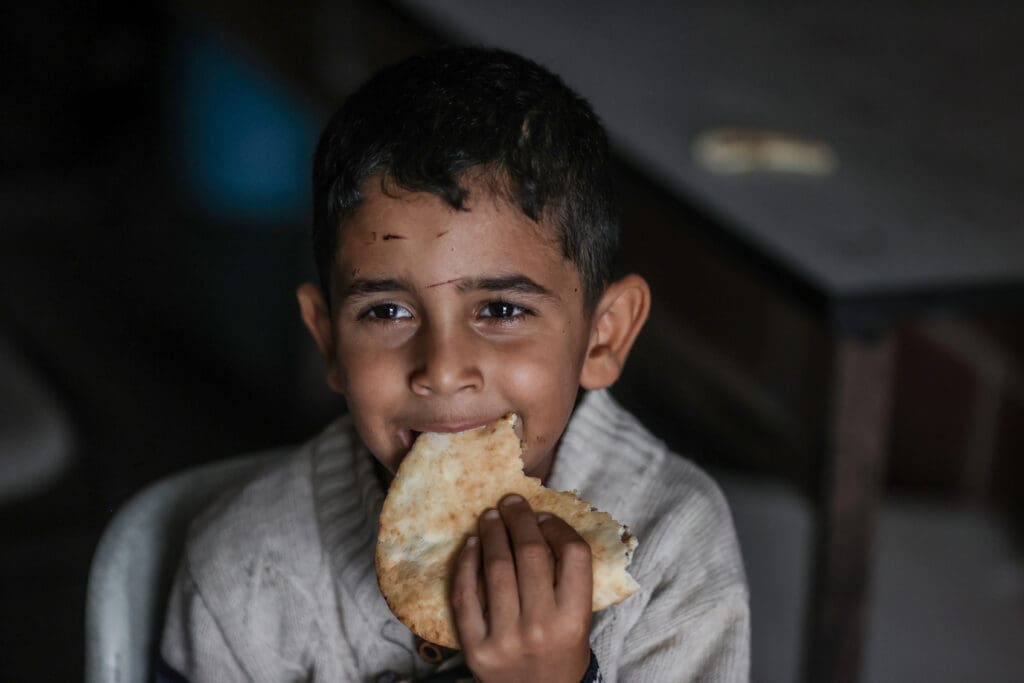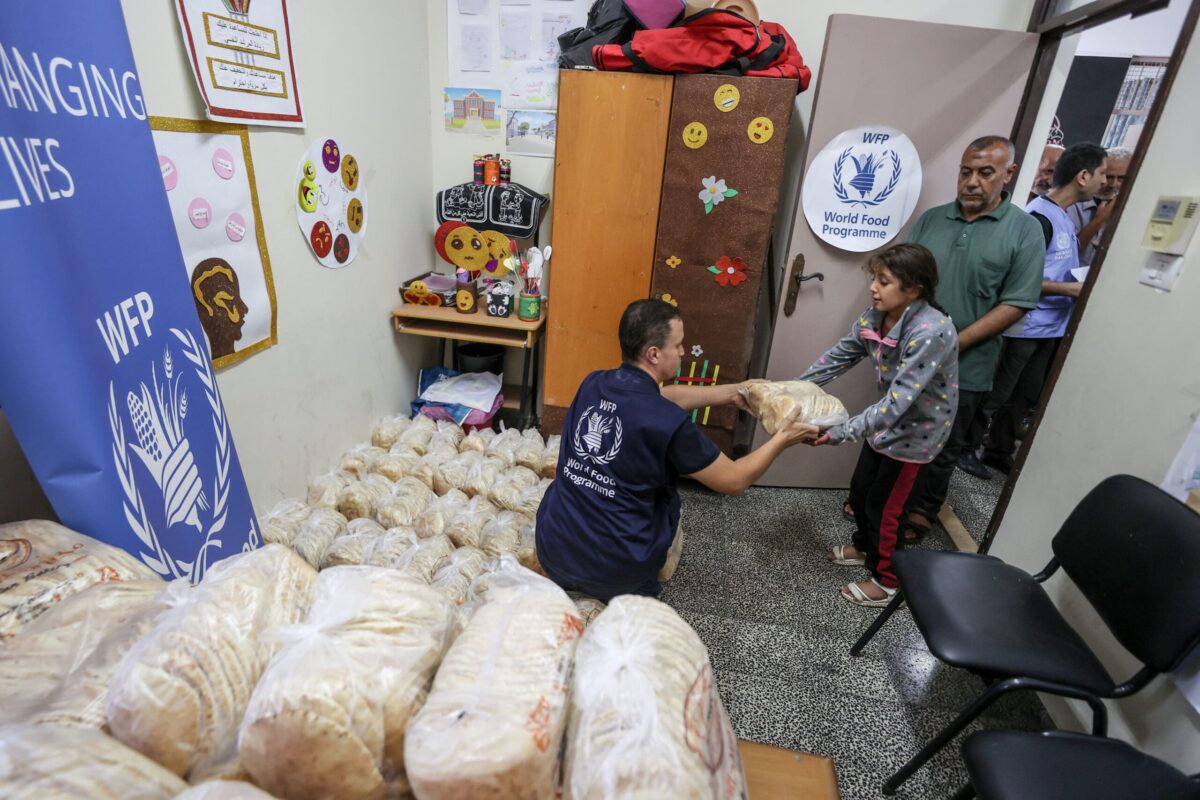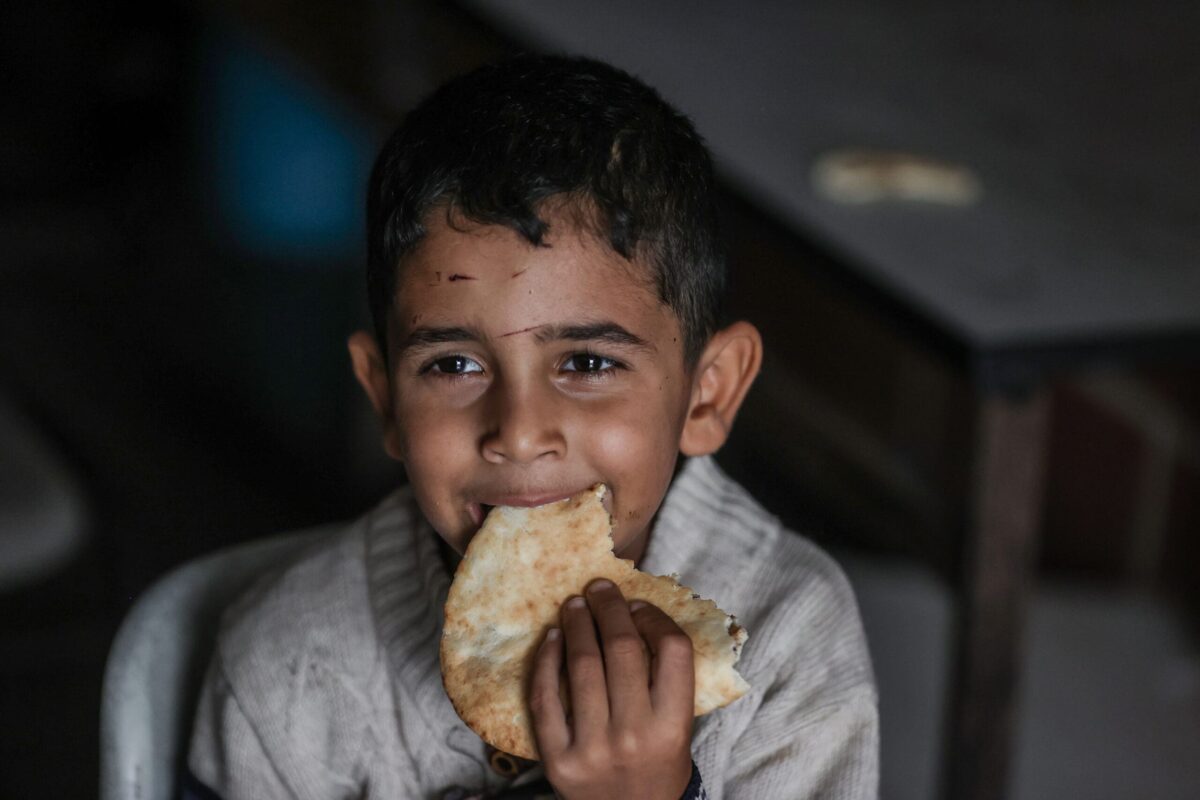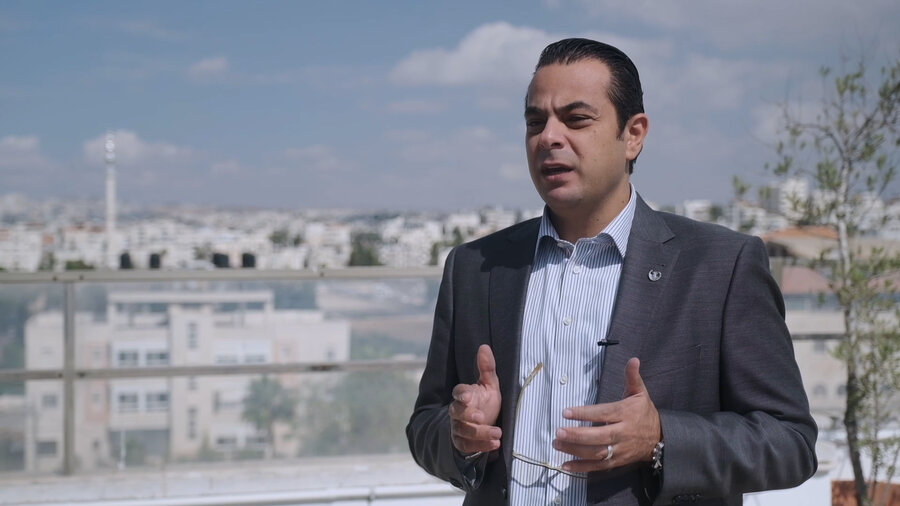WFP Calls for Safe Access to Reach People in Gaza in Urgent Need

The United Nations World Food Programme (WFP) is stockpiling 310 metric tons of food at the Gaza border ready for dispatch to people in desperate need – as soon as humanitarian access is granted.
The U.N. World Food Programme’s supplies in Al Arish, Egypt, could feed 244,000 people for a week if unhindered access and safe passage were provided to our teams on the ground. The U.N. World Food Programme is appealing for people fleeing southwards in Gaza to be afforded safe passage and to be protected in areas of displacement. Humanitarian organizations – including the U.N. World Food Programme – must be allowed to access these people whose needs are increasing by the hour.

WFP aims to reach 805,000 people over the next 30 days in Gaza and the West Bank.
Our food supplies in Al Arish include 20 metric tons of high-energy biscuits and two mobile storage units for warehousing. Food supplies procured from regional suppliers are also on the way to the border – mainly canned food and date bars. Ready-to-eat rations comprise a can of chickpeas and one of beans and a small box of juice.
Among those people needing our urgent support is Eyad Khalil and his family of eight in Gaza. “My fear is for my children,” he said. “My fear is for my relatives. My fear is for my neighbors. I fear for all of Gaza. Children are dying. We need everything. We need safety. We need peace. We need the necessities of life. Electricity. Water. Food. Drinking. There is no water. There is no water at all. Medicines for children. Food. Drinking.”
Despite immense challenges, the U.N. World Food Programme has provided food and cash assistance to over 522,000 people since the start of the current crisis, reaching people every day.
As of October 16, the U.N. World Food Programme had provided fresh bread to around 220,000 displaced people in 92 UN-designated shelters. The average number of people per shelter has nearly tripled, with tens of thousands of desperate families on the move.

Humanitarian organizations – including WFP – must be allowed to access people whose needs are increasing by the hour.
“The shops are going to run out of basic food items within days,” said Abdeljaber. “Any existing stock can’t reach the shops, or the people, because of damaged infrastructure and lack of fuel. The number of bakeries we work with is decreasing by the day. They also don’t have enough water or electricity to produce bread. We have had to reduce the ration we are giving to people because, while the shelters are overcrowding, our ability to reach them is becoming more limited.”

“The shops are going to run out of basic food items within days,” said WFP Palestine Country Director Samer Abdeljaber.
The U.N. World Food Programme aims to provide a vital food lifeline to 805,000 people over the next 30 days in Gaza and the West Bank, if conditions allow, bringing urgently needed food, water and other essential supplies. The current crisis erupted amid severe funding shortfalls, which in June forced the U.N. World Food Programme to suspend assistance to 60% of beneficiaries.
This story originally appeared on WFP’s Stories on October 18, 2023 and was written by Paul Anthem.




